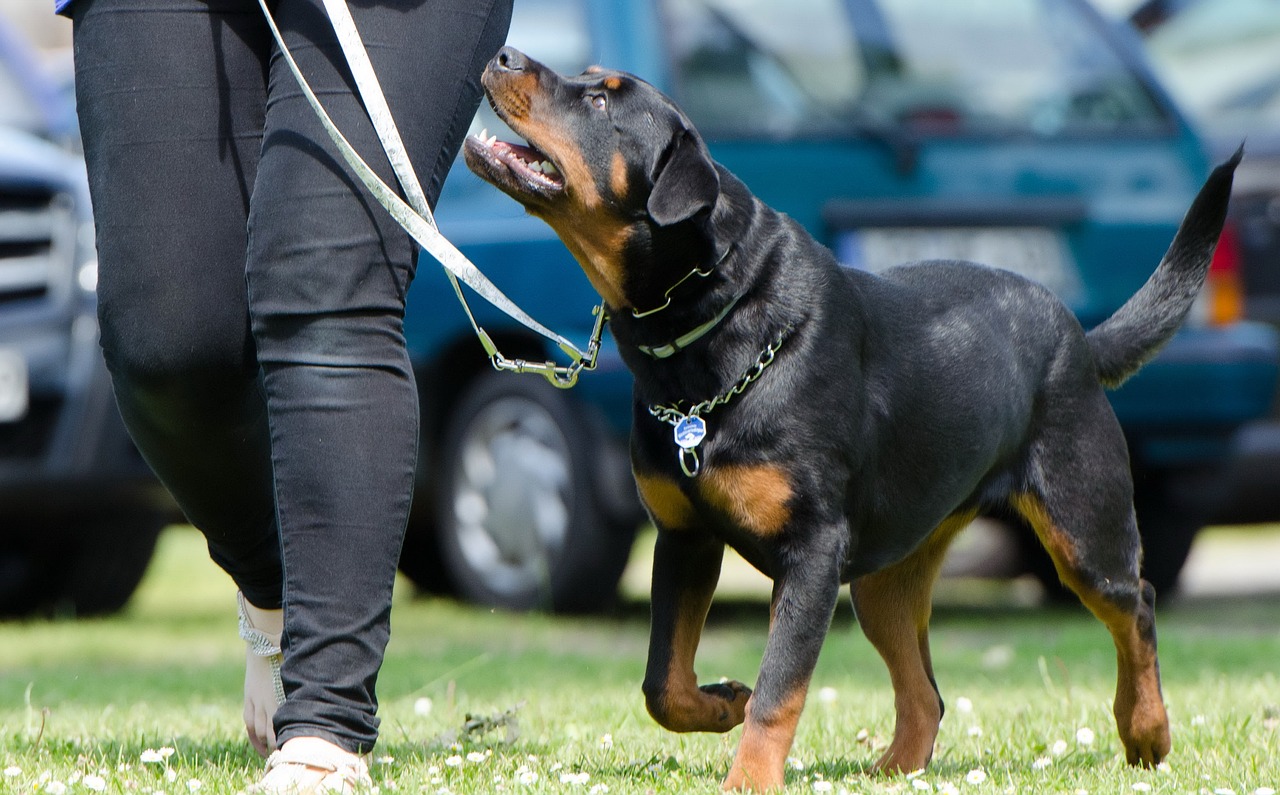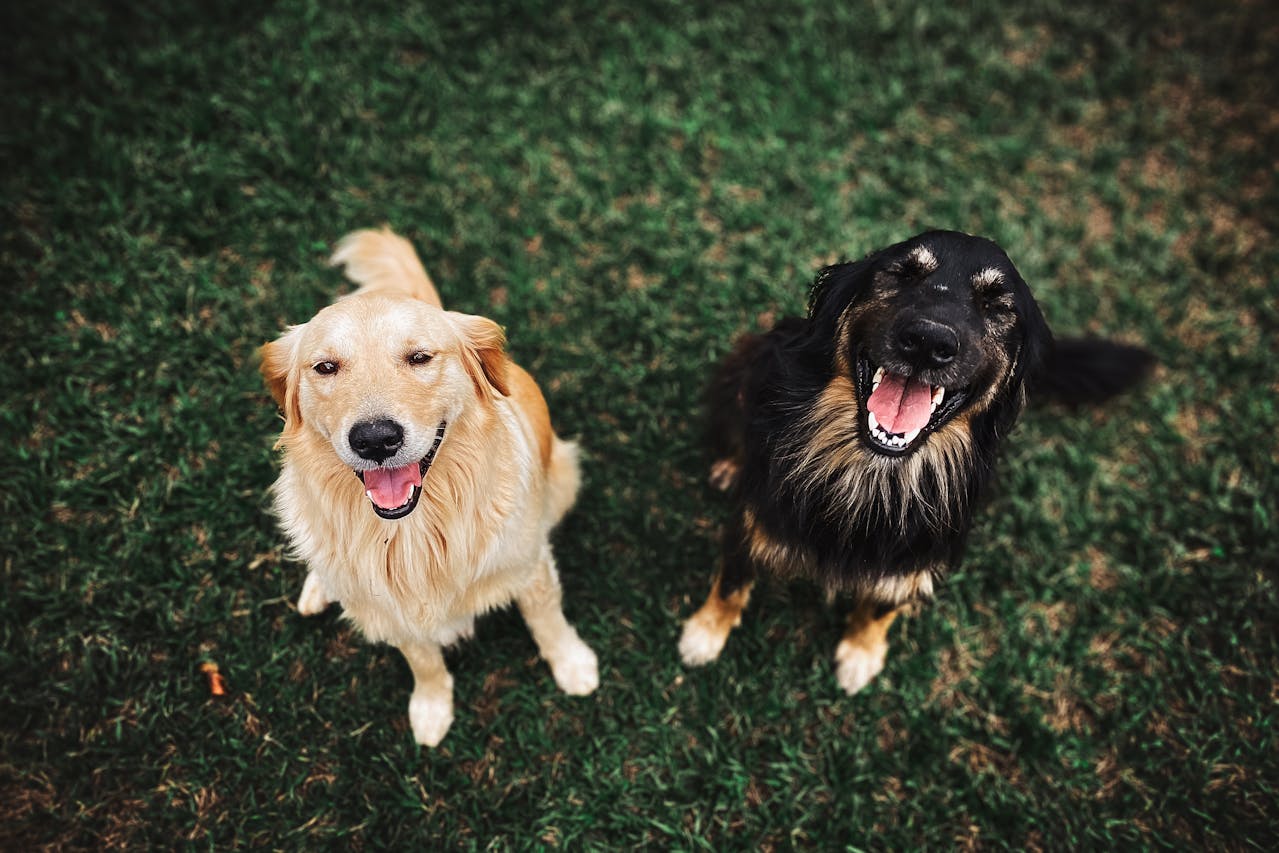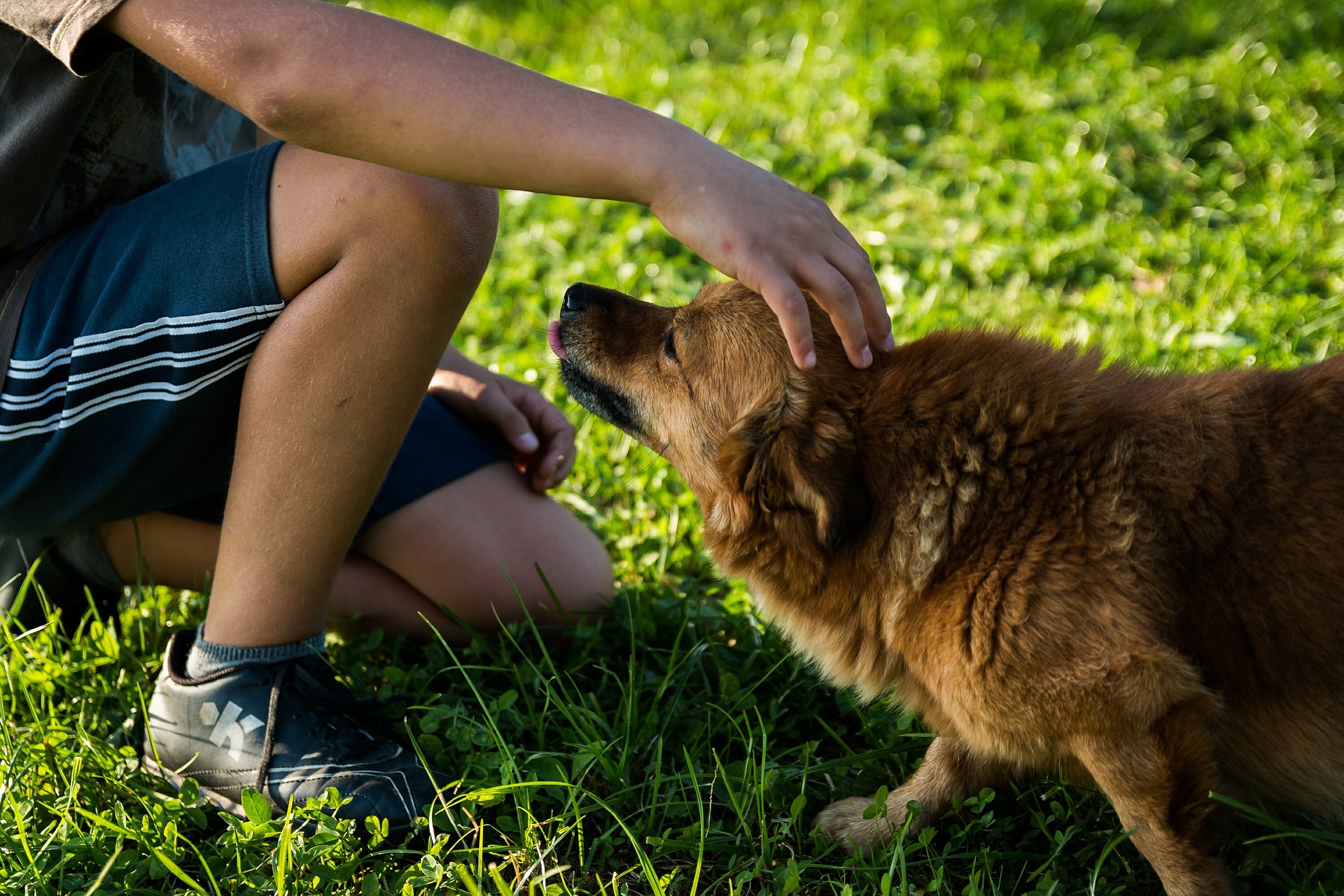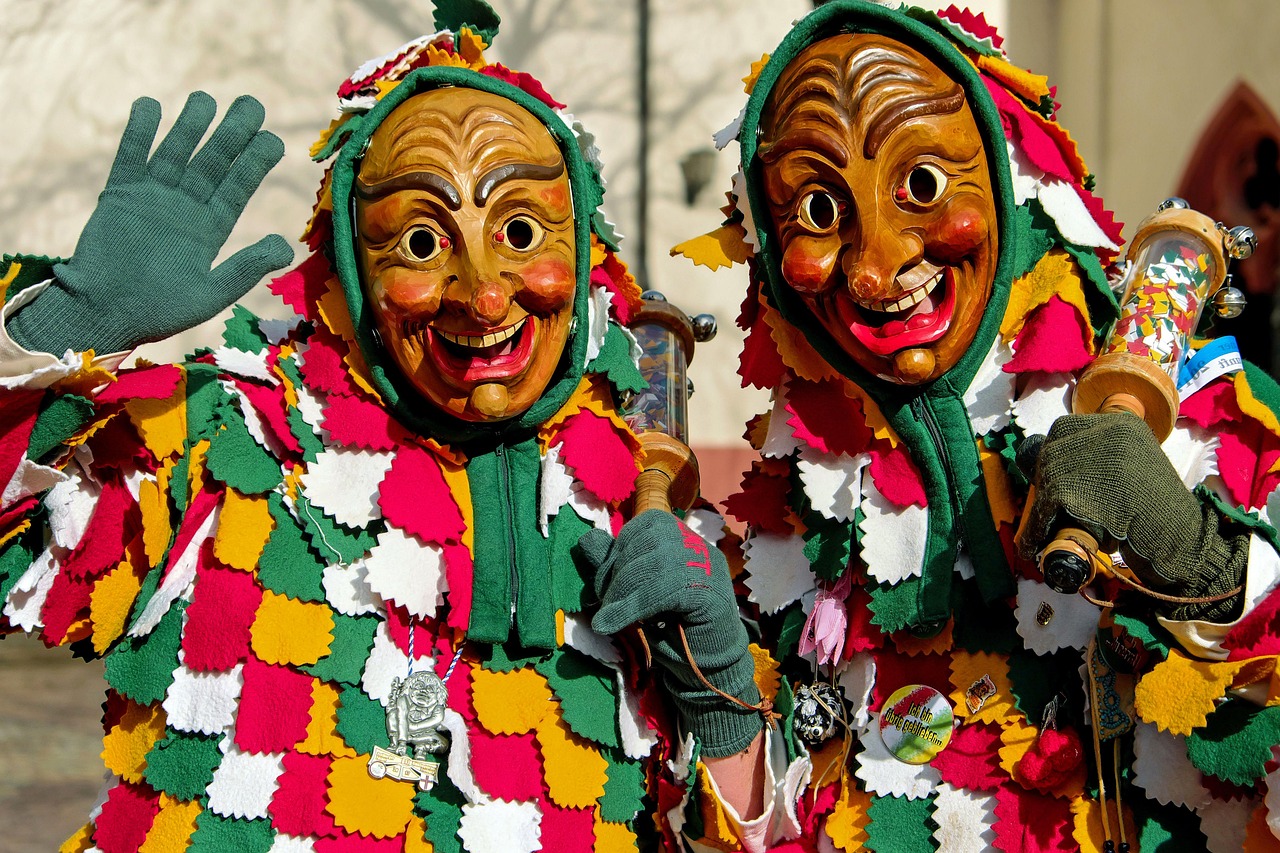
At the Service Dog Training School, we're all about celebrating the amazing and totally essential role that assistance and service dogs play in the lives of folks who aren't as lucky when it comes to health. These incredible pups help improve the quality of life for individuals, making it possible for them to fully enjoy work, social gatherings, and all those public events that make life so darn awesome.
To lend a paw to those in need, we have gone ahead and whipped up some top-notch online dog training courses. And let me tell you, these courses are top-notch. They are all about international ethical canine training and using positive reinforcement to bring out the best in our furry friends. We have self-trained lesson plans that cover everything from therapy dogs to emotional support animals (yup, that includes dogs and cats) to service dogs (you might know them as assistance dogs over in Europe).
Why is Service Dog Training Important for Urban Life?
Alright, so let me break it down for you! Service dog training in urban life is like maple syrup on pancakes – it's absolutely vital. You see, there are folks out there who fake their animals as service dogs, and that's a total bummer. It tarnishes the reputation of those genuine service dog teams who are out there doing their job like pros.
The real deal, properly trained assistance/service dogs, are the bee's knees. They're focused, well-behaved, and they don't go around begging for treats or causing any trouble for anyone. They are always responsive to commands and on their best behavior.
But, you know, there are some bad apples in the bunch – those fake service animals. They're the ones causing a ruckus, being all unruly and unresponsive. They're like that one uncle at a family gathering who just can't keep it together.
Here are the important reasons why dog training is a must, especially in the urban jungle as we hold them to be true:
Public Safety
In the hustle and bustle of city life, there is all sorts of risks – people, vehicles, distractions – you name it. Properly trained dogs are less likely to show aggressive behavior or go all crazy on the streets. They are the cool, calm, and collected type.
Social Interaction
Urban environments mean meeting all kinds of characters – different people, other dogs, and maybe even some wild critters. A good training session helps dogs learn how to be on their best behavior and avoid any pawtential conflicts.
Obedience and Control
Busy streets, crowded sidewalks – it's a lot to handle. But with some solid training, dogs will be like city-slickers, following commands and sticking close to their owners/handlers.
Reduced Nuisance
No one likes a party pooper, right? Untrained dogs can be a real nuisance – barking up a storm, jumping on people – not a great sight. Training sorts that out, making them way more enjoyable to be around.
Responsible Ownership
Owning a dog in the city is a big deal. It's all about being responsible and making sure your furry friend is on their best behavior. Training's the ticket to being a good canine parent and service dog handler.
Environmental Awareness
Let's keep the city clean! Training includes teaching dogs to respect public spaces, avoid littering, and not bother wildlife. That's good for the planet and everyone around.
Better Quality of Life
Happy dogs make for happy owners. When they know the rules and boundaries, they're content and living their best lives.
Access to Public Spaces
Urbanites love their parks and public places. Well-trained dogs get the golden ticket – they're welcome in these spots, making for some sweet city adventures.
Emergency Situations
You never know when things might get hairy – loud noises, construction sites, busy traffic. But with training, dogs stay cool and collected, ready to handle anything.
Compliance with Laws
No one wants to be in hot water with the law. Proper training means following the rules and avoiding any legal drama – especially if you've got an assistance/service dog. Keep that paperwork handy, folks! You might want to check out our article: Can You Fake a Doctor’s Note?
So, there you have it! Dog training in the city just makes life better. It keeps everyone safe, makes for responsible owners, and ensures our furry friends are living their best lives. So let's embrace the training and enjoy the paw-some companionship of our four-legged pals in the concrete jungle!
How to Find a Good Service Dog Training Plan?
Let's say that you agree with the arguments laid out above and you're looking to train your four-legged buddy. Great choice, by the way! Here's how you can kickstart your journey:
Start by doing some good ol' research, you know?
Figure out what kinda service dog training you need. It all depends on your health and lifestyle, buddy. Check out books, articles, and videos on YouTube (yeah, it's a good starting point, we'd say), and legit dog training websites. You might dig positive reinforcement training, clicker training, or whatever floats your boat. You may want to take a peek at our article: Is Service Dog Training Free?
Seek recommendations, pal!
Hit up your friends, family, and fellow dog owners. Jump into online communities, like Reddit. For example, r/service_dogs is a cool hub, you won’t regret it! And hey, if you're already in the dog training community, don't be shy to ask the American Kennel Club helpline for some direction. Get advice on effective dog training plans, preferred breeds, and trainers with awesome online reviews.
If you're feeling a bit hesitant about going solo on this service dog training adventure, consider consulting a pro dog trainer or behaviorist. They're top-notch! They'll assess your dog's needs, help you make a personalized plan, and even hook you up with dog breeders if you don't have a suitable pup yet. You may want to check our article: Professional Training - What Do You Need to Consider Service Dog Training Organizations Near You
Now, when you're looking for service dog training plans or trainers, make sure you go for the real deal – credible sources backed by experienced trainers and behaviorists. Look for certifications, qualifications, and satisfied clients' positive reviews. You can check us out, we got Trustpilot reviews, and our dog trainers have over 25 years of combined experience!
Get to know your dog!
Every canine is unique, just like you! So consider your dog's breed, age, temperament, and any behavioral quirks they might have. Tailor that service dog training plan to fit your furry pal like a glove. Look for other service dog teams that faced similar challenges, and learn from their solutions.
Focus on the positive, amigo!
Choose a training plan that's all about positive reinforcement, not that harsh punishment stuff. Positive vibes build an unbreakable bond with your dog and make them eager to learn and cooperate. We have some online dog training courses that capitalize on that and man, the feedback's been incredible.
Keep it real, alright?
Set goals that are doable and realistic, eh? Stay away from plans that promise quick fixes or rely on outdated and inhumane methods. Your dog's not perfect, and that's cool, make the training plan work for your unique furball.
Let's take it one step at a time!
Look for a training plan that starts with the basics and gradually moves up to more complex stuff. Slow and steady wins the race! You do not need to rush anything, this is your life and your journey.
Hey, you're in luck! Many reputable dog trainers and platforms offer online training courses. You can do them at your own pace, watch demos, and read all about it. But if online is not your thing, check out local dog training opportunities. There might be some awesome trainers around, willing to lend a paw!
Keep tabs on your dog's progress.
Stay objective and regularly evaluate your progress. And remember, don't shy away from making changes to the training plan when needed. Adapt and conquer, that's the way to go!
Make it work with your lifestyle!
Choose a training plan that fits right into your daily routine. We recommend training at least 30 minutes per day, at least 3 times a week if you can make it – that's the ticket!
Consistency, patience, and positive reinforcement.
That's the secret sauce for successful dog training. So pick a well-designed plan, stay positive, and watch your bond with your fur baby grow stronger than ever. Good luck, and let's make this journey a blast! Cheers!
What Should a Service Dog Training Plan Include?
It's important to know that every person's got unique needs, just like dogs, you know? There's no one-size-fits-all service dog training plan we can hand you. A service dog training course should include a comprehensive set of skills and behaviors to ensure that the dog is well-prepared to assist individuals with disabilities. Any solid service dog training course should cover some key areas.
First off, basic obedience is the foundation, pals.
Sit, stay/wait, down, come/recall, heel, leave it – these commands set the stage for more advanced tasks. Plus, a well-behaved doggo on a leash is a must, with no tugging or pulling. And let's not forget a reliable recall, eh? That's crucial for those potentially dangerous situations.
Next up, socialization!
Your service dog should be cool with different environments, people, and other animals. No fear or aggressive behavior is allowed. Comfort is key when your assistance animal's by your side everywhere you go. This is a good read on the topic: Puppy Socialization Checklist
In public spaces, your service dog needs to be a real pro.
No aggression, excessive excitement, or nuisance behavior, got it? They gotta work calmly and low-key, even with a service dog vest or a specialized harness on. You may be interested in our coverage of the topic: How to Train a Service Dog in Public
We need the core of the training, task-specific stuff.
Your dog needs to learn tasks that directly help you out. Retrieving objects, opening doors, turning lights on/off, alerting to medical conditions – like low and high blood sugar levels or heart rate, as well as providing stability during balance issues. Training them in various real-life scenarios ensures they're consistent and dependable.
Distraction training is a must, folks.
Your service dogs need to remain focused on their handler's commands and tasks, even in distracting or challenging environments. This takes time and patience to master but it pays off big time!
Now, etiquette around other dogs.
Your service dog should be polite, no fooling around with other pups while they're on the job. This may be difficult for some dogs if they are genetically predisposed to being trusting, friendly, and open to strangers. However, your dog is as much shaped by nature and nurture so you should try to work around your dog's temperament.
And hey, let's not forget about you, the handler!
You need training too, bud. Understanding and reinforcing your dog's commands, maintaining their skills, and handling any challenges that come your way. Any reliable service dog training course will include lessons on the handler's responsibilities, rights, and relation to their community. We recommend reading: First Time Service Dog Handler: 10 Mistakes You Want to Avoid
Final Words
Our goal is to teach people the ins and outs of theory, practical skills, and what it means to have a solid dog-human partnership. We want everyone to feel equipped to handle their awesome canine companions like pros. And hey, that's not all! We also hook our clients and website visitors up with some fantastic dog training articles and general legal info – all on the house, of course! Check out our blog!










